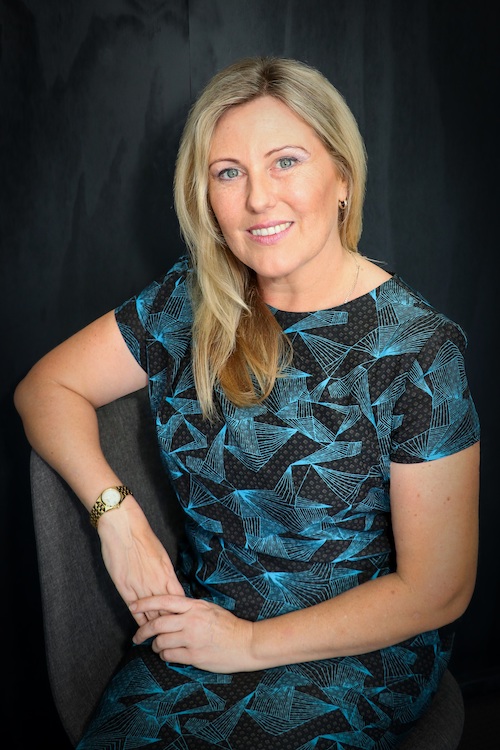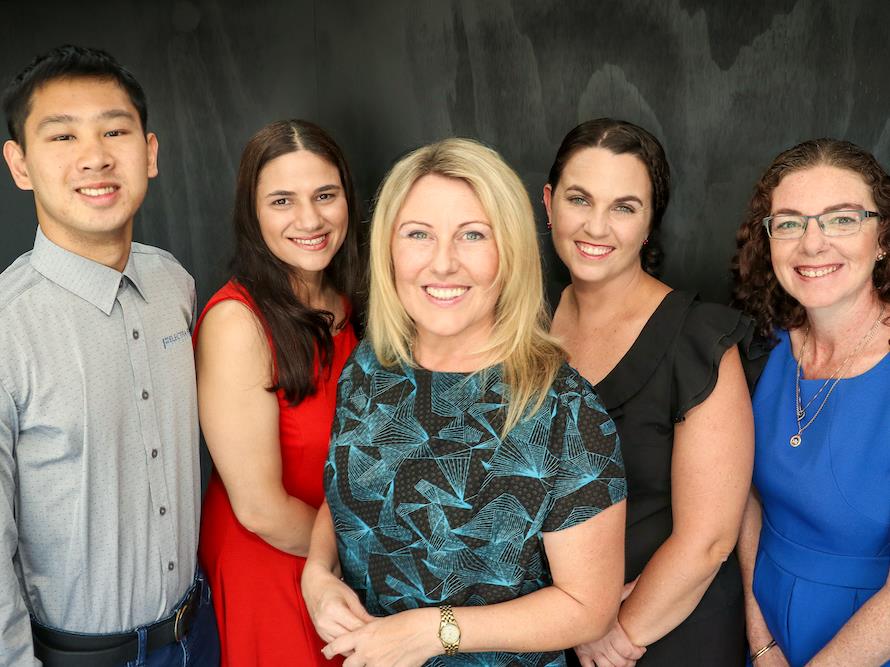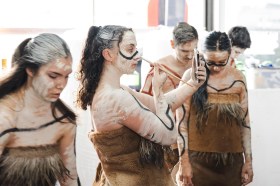Electra Frost, centre, and her team specialise in international tax law for Australian artists. Picture supplied.
One of the biggest mistakes artists make when they work overseas is not seeking the right advice to avoid double taxation and fines, says accountant Electra Frost.
‘My motto is: Find out what you need to know before you go,’ she told ArtsHub. ‘But it’s often not the case. People will just follow the dream and think they don’t need to do a tax return anymore. Then they start getting messages alerting them that the ATO is chasing them and realise they have a hot mess to sort out.’
Frost, who became an accountant after playing in bands and studying at art school but found her calling was explaining tax law to artists, says it’s a common misconception that any money earned performing or working overseas is of no interest to the Australian Tax Office (ATO).
She warns that if you are travelling overseas, or working and living abroad on a temporary basis, you may still be classified as an Australian tax resident and thus need to declare all overseas income. If you are relocating permanently, then you need to tie up your loose ends with the ATO so you aren’t pursued for not lodging tax returns each year.
Global tax authorities are increasingly using digital methods to collect and share taxpayers’ income records and our tax laws are constantly changing, so it’s more important than ever to stay one step ahead.
Having a plan before you go is usually quick and easy to formulate, alleviates headaches and excessive taxation of your hard-earned money, she says.
‘We don’t want people coming back to huge fines and debt and have to go and live with mum and dad,’ she said. ‘A one-hour conversation with an accountant like us before you go gives you a very clear idea of how to avoid that.
‘Accountants who are experienced in international tax and the creative industries know all about the tax treaty provisions that apply to you with any country you work in and can coordinate your returns and claims. We also liaise with your chosen accountants in other countries to make sure you achieve a balanced correct tax outcome.’

Frost works with artists across all creative sectors. Picture supplied.
Frost holds a Masters in International Taxation and her firm specialises in business advisory and international taxation specifically for Australians in the artistic and creative industries. They consult with clients working overseas, as well as those who are increasingly earning an income from their intellectual property or selling their work online to new global markets through their own sites and via platforms such as Bluethumb and Amazon.
‘We use multi-currency real-time accounting software and can track all their foreign currency gains and losses and overseas taxes paid,’ she said.
Frost’s clients are mainly self-employed arts and film industry professionals, authors, visual artists, musicians and entertainers, designers and creative agencies all over Australia and overseas. She made a conscious decision to specialise in the arts sector because it is also her passion.
‘Counting money all day for people whose ultimate ambition is to amass wealth for the sake of it makes me want to throw paint at the walls, badly,’ she said. ‘The creative sector is full of original thinkers who can make new things out of nothing, and they make me want to be an accountant.’
Her team have had quite a few success stories along the way, including finding solutions for numerous artists with multi-year overseas tax complications. They’ve introduced cloud accounting systems to streamline operations for many small businesses to allow them to expand and manage grant funding and cash flows; and helped an artist to sell online to double his income and quit his full time IT job.
Frost says the appreciation they receive from helping clients to create a sustainable living from their art is a great reward for her and her team of six.
‘Our clients feel as though their businesses are validated,’ she said. ‘They ask us “Am I really in business? My family accountant has been treating me like I’m a hobbyist” but we take them seriously and say, “Manage this properly and you can make a real go of it”.’
For more information about your tax implications if dealing with international clients or working overseas, contact Electra Frost and her team via their website.
General Advice Warning:
Any recommendation or advice contained in this article is not intended to be financial or tax advice and is for general information only. Readers should only act on information after having received professional advice appropriate to their personal circumstances.





